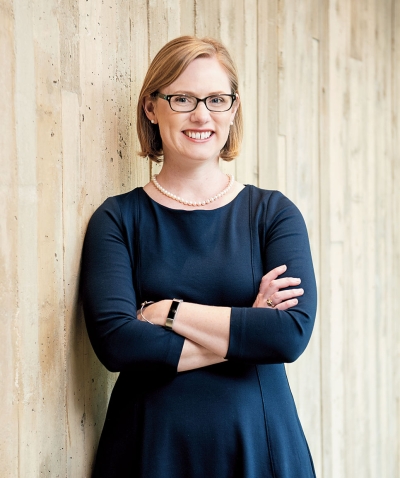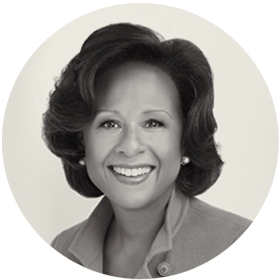Photo by Webb Chappell
In July, President Paula Johnson shared the College’s strategic plan, “Amplifying Wellesley’s Mission for a Changing World,” with the alumnae community. We, as alumnae, have a role to play in activating the vision it articulates for the College’s future.
The plan states, “To realize this vision, all the constituent parts of our community will have to work together as one Wellesley—integrating programs and operations more intentionally and finding new connections in our educational work, so that we can carry the College’s mission into the future.”
Over the 140 years since the Alumnae Association was founded, including in the 70 or so years since our “modern” structure was established (around the time the “New Dorms” were built!), the organization has had one mission: to further the interests of Wellesley College and its alumnae by connecting alumnae to the College and to each other. The mission remains as true today as it was in 1880.
Over the course of our history, how we fulfill that mission has become increasingly complex and resource-intensive. As we enter the next phase, it is critical for the WCAA to make changes to simplify our operations and focus our resources and attention on what matters most to Wellesley.
You may be experiencing one change if you’re reading this in a digital format: an opt-in to print pilot for the magazine. Alumnae and friends can still access high-quality content from this award-winning publication, while we are able to be both eco- and budget-conscious in our distribution. Alumnae in the first five years out will automatically receive the print magazine as we encourage an early connection to the College and the wider community; alumnae beyond five years can easily continue to receive the print magazine with a quick click at alum.wellesley.edu/sendmagazine.
The role of alumnae in student recruitment has a new look this year. The admission team recognized a need to streamline efforts to improve Wellesley’s ability to engage an increasingly large and diverse population of students and more effectively highlight the value of the Wellesley experience and the alum network. In order to focus on programs that have greater impact on recruitment and matriculation, Wellesley will no longer offer one-on-one interviews for prospective students and will end the book award program. Wellesley’s new strategies for engaging prospective students are data-informed, industry-leading practices, and focus on a variety of events and virtual tools to connect with alumnae, current students, faculty, and staff.
As we consider key ways to connect alumnae to the College, the success of virtual programs we offered last year demonstrated the opportunity to engage a broader alum population. With the new virtual Faculty Speaker Series, we are able to offer a diverse range of speakers and topics, vary time zones to accommodate our global community, and make lectures available for asynchronous viewing.
The strategic plan highlights the critical need to work through the discomfort change presents: “… we have come to realize that our existing strengths cannot be sustained unless they are complemented by an institution- and community-wide willingness to embrace change.”
As we’ve engaged in conversations around mission and vision and change over the past few months, I have found that nearly every alum considers herself a “change embracer.” But when a beloved program or tradition is impacted, however big or small, this commitment is challenged, and the discomfort is real. The pain point is different for each person. I heard “hallelujah” from some alumnae regarding the updates to admission strategy and dismay from others. Some alums will miss faculty lectures in their regional area, and others are delighted that they will be able to participate from their area of the world, where robust regional programming may not exist.
The plan ends by calling on us all, “in a spirit of optimism and possibility, to join together as one Wellesley to realize this bold vision for Wellesley’s future.” Please join us in amplifying and enabling Wellesley’s impact for future generations as we embrace this call to action.







We ask that those who engage in Wellesley magazine's online community act with honesty, integrity, and respect. (Remember the honor code, alums?) We reserve the right to remove comments by impersonators or comments that are not civil and relevant to the subject at hand. By posting here, you are permitting Wellesley magazine to edit and republish your comment in all media. Please remember that all posts are public.